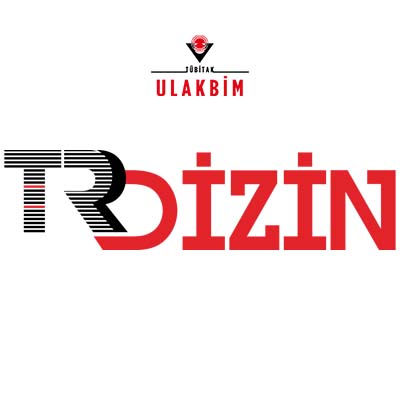Arktik’teki Deniz Yetki Alanı İhtilafları ve Ukrayna-Rusya Savaşı’nın Bölge Devletlerindeki Silahlanmaya Etkisi (Maritime Jurisdiction Disputes in the Arctic and the Impact of the Ukraine- Russia War on Armament in Regional States)
Keywords:
Arctic region, maritime jurisdiction, conflicts, Ukraine-Russia war, armamentAbstract
As a result of increase in the melting rate of glaciers due to climate change in recent years, the Arctic Region has turned into a socio-ecological area. States aiming to benefit from geo-economic power created by economic riches of the region have started to develop various policies in order to become militarily strong. Since the beginning of the Ukraine-Russia War, tensions in the region have increased further with the inclusion of NATO member states in the Arctic in the sanctions imposed on Russia. For these reasons, it is important to investigate the possible consequences of the defense expenditures of the countries in the region on maritime jurisdictions. The aim of this study is to investigate the conflicts in maritime jurisdiction areas in the Arctic region and to examine the effect of war between Ukraine and Russia on armament of the Arctic region countries. Literature review was used as a method in the study. Depending on this study, tables were created using quantitative data obtained. It was determined that there are three disputed regions regarding maritime jurisdiction areas in the Arctic region. It has been determined that the NATO member states, which are a party to these conflicts, have increased their defense expenditures since the beginning of the Ukraine-Russia War. As the war increases the military expenditures of the states in the region, it also increases armament and tension. Therefore, it also brings along the risks of conflict. It is aimed to contribute to the Turkish literature with the study titled "The effects of the Russian War on the armament in the region". In addition, solution-oriented suggestions were made based on the research results.
References
Arctic Council, (2020). First arctic shipping status report from PAME Working Group highlights increase in Arctic shipping traffic. [Erişim tarihi: 03.11.2022. https://arctic- council.org/en/news/first-arctic-shipping-status-report-increase-shipping-traffic/].
ArcticEcon,(2011). Beaufort Sea dispute. [Erişim tarihi: 24.12.2022. https://arcticecon.wordpress.com/2011/01/10/beaufort-sea-dispute ].
BBC News, (2010). Norway and Russia 'open up for business' in the Barents sea. [Erişim tarihi: 24.12.2022 www.bbc.co.uk/news/business-11299024].
Berkut, N. (2021). Küresel ısınmanın etkisi bağlamında Arktik (Kuzey Kutbu) Bölgesi’nin hukuki rejimi. Seçkin Yayıncılık.
BM, (1984). Birleşmiş Milletler Deniz Hukuku Sözleşmesi. [Erişim tarihi: 21.07.2022 http://denizmevzuat.udhb.gov.tr/dosyam/denizhukuku.pdf].
Demirci, A. (2014). Araştırma yöntemleri. Coğrafyacılar Derneği.
Eguíluz, V. M., Gracia, J., F., Irigoien, X. & Duarte, C. M. (2016). A quantitative assessment of Arctic shipping in 2010-2014. Scientific Reports 6, 30682.
Cantürk, İ.U. & Atvur, S. (2021). Arktik bölgede çevresel bozulma, strateji ve rekabet: çevresel güvenlik bağlamında bir değerlendirme. International Journal of Politics and Security (IJPS), 3(1), 180-217.
Ertuğrul, Ü.E. (2017). Birleşmiş Milletler deniz hukuku sözleşmesine göre kıyı devletinin egemen hakları. Gazi Üniversitesi Hukuk Fakültesi Dergisi, 21(1), 41-81
Griffiths, S. (2010). US-Canada arctic border dispute key to maritime riches. [Erişim tarihi: 24.12.2022. BBC News, https://www.bbc.com/news/world-us-canada-10834006].
Ilgaz, H. (2009). Denizde bilimsel araştırmaların uluslararası hukukta düzenlenmesi ihtiyacının ortaya çıkışı, Journal of Naval Science and Engineering, 5(1),39-48.
IPCC, (2014). Climate Change 2014: Synthesis Report. Contribution of Working Groups I,II and III to the Fifth Assessment Report of the Intergovernmental Panel on Climate Change. Cenevre: IPCC.
Köroğlu, S. (2015). Literatür taraması üzerine notlar ve bir tarama tekniği. GİDB Dergisi. 1, 61-69.
NATO, (2022). Defence Expenditure of NATO Countries (2014-2022).
Ondrej U. (2015). Future of the Arctic Oil Reserves. Stanford University Coursework PH240.
[Erişim tarihi: 31.10.2022. http://large.stanford.edu/courses/2015/ph240/urban2/#:~:text=Available%20Resources &text=As%20such%2C%20the%20Arctic%20is,world's%20individual%20undiscover ed%20hydrocarbon%20resources].
PAME. (2021) The Polar Code. [Erişim tarihi: 03.11.2022.
https://www.pame.is/projects/arctic-marine-shipping/the-arctic-shipping-best- practices-information-forum/the-polar-code].
Polar Discovery. The Arctic: Exploration Timeline. [Erişim tarihi: 23.12.2022. http://polardiscovery.whoi.edu/arctic/330.html].
Reuters, (2022). Russia to spend $600 billion on defence and security by 2025. [Erişim tarihi: 24.12.2022. https://www.reuters.com/business/aerospace-defense/russia-spend-600- bln-defence-security-by-2025-source-2022-09-23/].
Sancak, K. (2019). Deniz hukukuna ilişkin temel egemenlik alanları bağlamında Arktik’teki ihtilaflı alanlar ve hukuki durum. Uluslararası İktisadi ve İdari İncelemeler Dergisi, 23, 17-34.
Statista, (2021). National defense expenditure in the federal budget of Russia from 2006 to 2021(in billion Russian rubles). [Erişim tarihi: 24.12.2022. https://www.statista.com/statistics/1045682/russia-national-defense-federal- expenditure/].
The Division for Ocean Affairs and the Law of the Sea, (2022), Submissions, through the Secretary General of the United Nations, to the Commission on the Limits of the Continental Shelf, pursuant to article 76, paragraph 8, of the United Nations Convention. [Erişim tarihi: 17.09.2022, https://www.un.org/depts/los/clcs_new/commission_submissions.htm].
Downloads
Published
How to Cite
Issue
Section
License
Copyright (c) 2024 Journal of Anatolian Cultural Research (JANCR)

This work is licensed under a Creative Commons Attribution-NonCommercial 4.0 International License.










